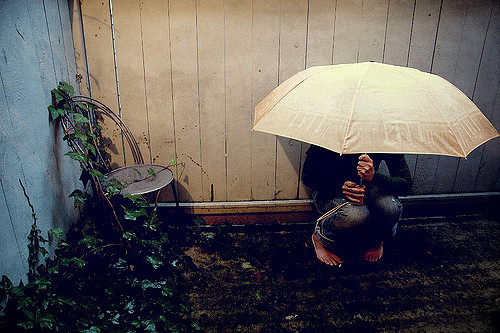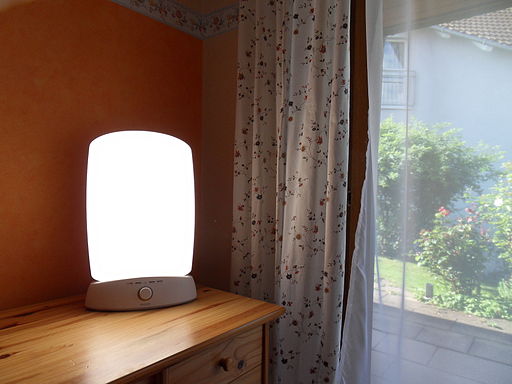There are a few weeks to go, but the times when the clocks will “fall back” is nearly upon us. It’s impossible not to notice the evenings already creeping in faster, and the clocks changing is the final nail in summer’s coffin. It’s fall; and it’s only going to get darker, bleaker and less tolerable from here.
Unfortunately, the change in the amount of hours of daylight available can have serious implications for your health. Much is said of Seasonal Affective Disorder – commonly abbreviated to SAD – but little is retained. As it is somewhat natural to feel less energetic and suffer from the “winter blues”, we don’t always recognize when it’s an issue.
SAD has many symptoms. Confusingly, these can also be signs of generally poor mental health or other conditions such as PMS. The main note for SAD is that it tends to only happy in winter. Are you usually bright and bubbly, but find the winter months besieged by low confidence? Is your Christmas merriment tempered by a lusting for longer days?
If the answer is yes, be on the lookout for the other common SAD symptoms such as tiredness, low mood and irritability. Cases range from the mild to the very severe, but all will have an effect on your ability to enjoy the year. After all, if you spend six out of every 12 months miserable, then that’s half of the year you’re losing.
Even if you don’t have full blown SAD, the winter blues are not something to be discounted. The preparation for surviving the season begins here and now, so on your marks, get set… go!
Go… and make sure your sleeping space is comfortable.
Lethargy is a huge part of feeling low in winter. We are less exposed to melatonin and Vitamin D, so we struggle for energy. That’s one of the reason we crave calorific and starchy food when it’s cold – we’re trying to win some energy back.
To make the most of the hours of sleep you do have, make some bedroom changes. Switch your bedding for something winter-appropriate; no one wants to wake up shivering. If you have annoying streetlamps keeping you awake, then look into blackout blinds rather than curtains. There are known blackout curtain issues which can stop them being as effective, meaning your sleep space could still suffer. If you really struggle to get going in the morning, look for an alarm clock that has a daylight simulation. The evidence is somewhat sketchy on the efficacy of these, but thousands of SAD sufferers swear by them for their morning boost.
Go… grab some vitamins.
Vitamin D is an awkward vitamin. Humans don’t produce it in our bodies and we can’t process it well when consumed in food. It’s estimated there is a Vitamin D deficiency epidemic, which is unnoticed because of how minor the symptoms feel. Vitamin D supplements can help give you a boost in winter. While you can find Vitamin D in general multivitamins, it might not be one of the best absorbed forms. Opt for something specific, ideally the best-absorbed Vitamin D3.
Go… buy a SAD lamp.
A SAD lamp is an extremely bright light, and is very effective at dealing with winter mood problems. Unfortunately, people have a tendency to use them incorrectly, just putting them on in the corner of a room. This means their reputation is tarnished.
It’s not worth it as a SAD light if it doesn’t give at least 10,000 lux in radiance, so check the product information. You then need to sit and look almost directly at it, for at least ten minutes a day. Train your vision just beneath the light and keep it there. Just having it on in the corner will do little more than provide an expensive – and not particularly stylish – lamp.
Go… eat some foods to give you a mood boost.
Tryptophan is an amino-acid, and it is directly linked to our mood. It is found in the common supplement 5-HTP, which has been proven to help mild to moderate depressive issues. Without resorting to another supplement, plan your winter meals to be tryptophan-heavy. Poultry is your best bet, with duck being a particularly strong source. Also try and increase your intake of the leafy greens, which contain depression-fighting B vitamins in abundance. Though you can supplement, it’s always preferable to obtain what you can through food.
Winter is a rough time, but with the tips above, you should be one step closer to controlling it. Remember: if any SAD-related symptoms become too much to bear, seek medical advice and guidance.







With a professional online course helper, you can easily manage assignments, projects, and course content. Just say take my online course for me and let us assist you in reaching your academic goals!
Pay Someone To Take My Online Course
We provide support for those looking for ‘Take my GED for me’ or ‘Take my TEAS exam’ solutions. Need help with your GED or TEAS exam? We offer services so you can pay someone to take your GED or TEAS exam, hire someone for exam assistance and solutions.
Pay Someone To Take My TEAS Exam